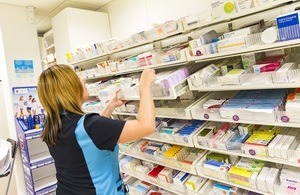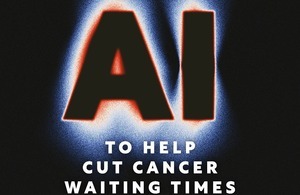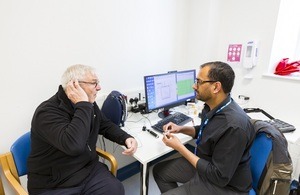Serious shortage protocols (SSPs) have been issued across the UK for 3 penicillin medicines today (Thursday 15 December).
SSPs are a standard procedure, used frequently to manage temporary and potential medicine supply issues. They are a safe and effective way to ensure that medicines continue to be available for everyone who needs them, while saving time for patients, pharmacists and prescribers.
Issuing an SSP allows pharmacists to legally supply a specified alternative medicine, removing the need for the patient to return to the prescriber – which saves time in GP practices and inconvenience for patients. Usually when a patient presents a prescription, by law, the pharmacist can only supply what is on the prescription. If the medicine is not available, the patient must be sent back to the prescriber to get a new prescription for an alternative.
Demand for penicillin has risen recently as it is used to treat strep A and scarlet fever, and the increased demand means that some pharmacists are experiencing temporary and localised supply issues and may not have the specific formulation listed on the prescription.
There are 9 other SSPs currently active. They have been used to improve patients’ access to hormone replacement therapy drugs and were used extensively during the pandemic.
There are various versions of penicillin – liquid, sugar-free liquid and tablet – and the SSP issued today will give pharmacists the flexibility to supply an alternative formulation, if they do not have the one listed in stock.
The SSPs apply to the following medicines:
• phenoxymethylpenicillin 250mg/5ml oral solution sugar free
• phenoxymethylpenicillin 250mg/5ml oral solution
• phenoxymethylpenicillin 125mg/5ml oral solution sugar free
Minister of State for Health Will Quince said:
The increased demand for the antibiotics prescribed to treat strep A has meant some pharmacists have been unable to supply the medicine shown on the prescription.
These SSPs will allow pharmacists to supply an alternative form of penicillin, which will make things easier for them, patients, and GPs.
We are taking decisive action to address these temporary issues and improve access to these medicines by continuing to work with manufacturers and wholesalers to speed up deliveries, bring forward stock they have to help ensure it gets to where it’s needed, and boost supply to meet demand as quickly as possible.
The Chief Pharmacist provided guidance to the profession last week, emphasising the importance of prescribers and local pharmacy teams working together to understand availability of antibiotics locally and ordering antibiotics sensibly, so as not to put the supply chain under pressure.
The latest data from the UK Health Security Agency (UKHSA) shows there is an out-of-season increase in scarlet fever and strep A
infections. There is no evidence to suggest this is a new strain and it is likely being caused by high amounts of circulating bacteria and increased social mixing.
Strep A symptoms include flu-like symptoms, a sore throat, headache, fever, and muscle aches. If there is also a rash that feels rough like sandpaper it could be scarlet fever.
There are several viruses that cause sore throats, colds and coughs circulating. These should resolve without medical intervention.
However, children can on occasion develop a bacterial infection on top of a virus and that can make them more unwell.
For parents, if you feel that your child seems seriously unwell, you should trust your own judgement.
The NHS website has more information on the signs and symptoms of strep A and scarlet fever.















